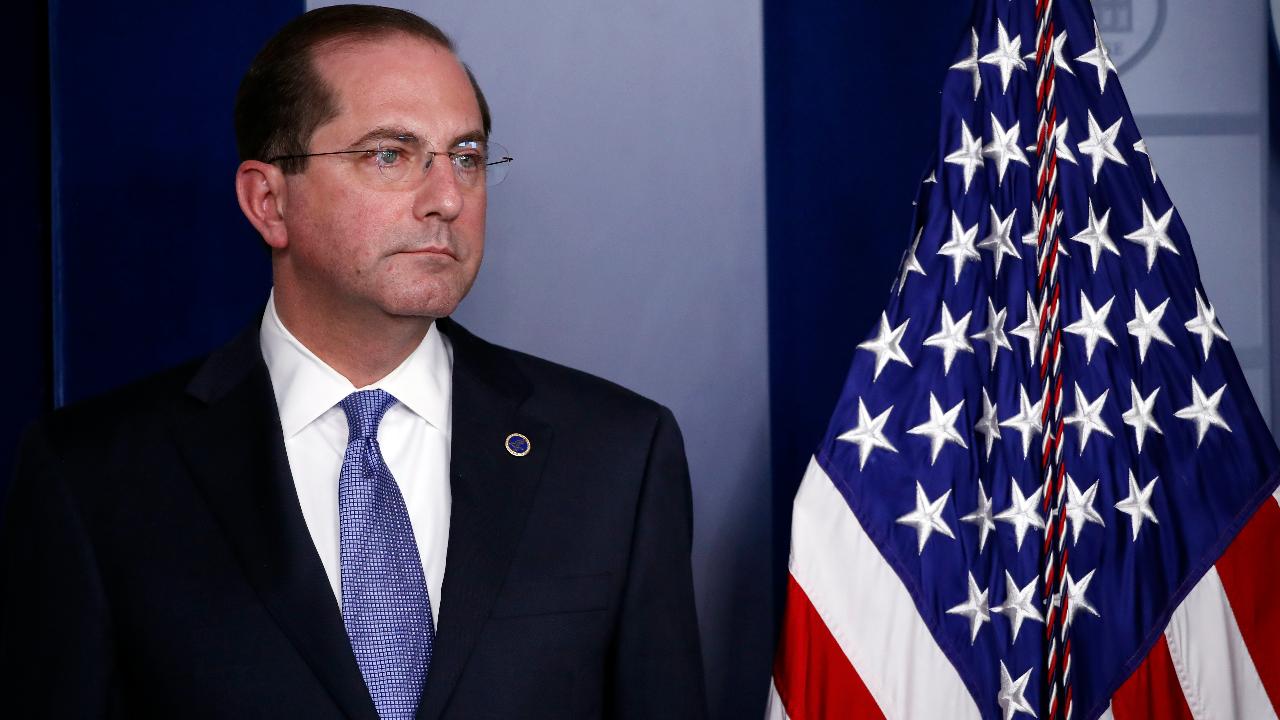Health authorities roll out new coronavirus tests to gauge infection's spread
A serology test looks in a person's blood for antibodies, immune proteins developed to help fight off future infections
Health departments, hospitals and companies around the world are rolling out the next wave in Covid-19 testing, which looks in a person's blood for signs of past infection.
The new tests promise to give public-health and hospital officials a better idea of how widely the virus has spread and who can safely treat patients and stop social distancing. But uncertainty about the accuracy of some of the tests and unknowns surrounding immunity to Covid-19 -- the respiratory disease caused by the novel coronavirus -- could limit their usefulness, at least early on.
TRUMP TOUTS 'PROMISING' PFIZER CORONAVIRUS TREATMENT UNDER DEVELOPMENT
"To date, we have had no clue how many people have been infected," said Eran Bendavid, an infectious-disease physician at Stanford University. "This could be an extraordinarily important piece of how we're going to get over this epidemic."
In the U.S., the Food and Drug Administration granted the first emergency authorization for one of the blood tests last week, and the Centers for Disease Control and Prevention said it has started using its own test. China, Germany and Finland are among the other countries using the tests to better understand how the disease spreads.
The blood tests, known as serology tests, are different from the tests that diagnose a Covid-19 infection by looking for a chunk of the coronavirus's genetic code in a swab of a patient's nose or throat.
A serology test looks in a person's blood for antibodies, immune proteins developed to help fight off future infections. The presence of coronavirus antibodies indicates that a person has been exposed and developed some level of immune response.
The information could reveal how many people have been infected already and how many would potentially be susceptible to future infection, data that public-health authorities could use to better understand and respond to the pandemic.
AMAZON TAKES ON CORONAVIRUS BY DEVELOPING TESTS FOR WIDE USE
Hospitals are especially eager for serology tests, which could help them identify which workers might have a level of immunity.
"If I had 10 nurses and five were immune, I could assign them to different areas," said Anthony Harris, a hospital epidemiologist at the University of Maryland School of Medicine. "It could create a win-win: You decrease their anxiety, increase better patient care."
The FDA granted an emergency use authorization to a serology test made by Cellex Inc. on April 1. At least 70 other companies and laboratories have told the agency they are offering serological testing, though the FDA hasn't reviewed those tests.
The CDC said it has deployed its tests in several contact investigations and plans to start larger population surveys in the coming weeks.
Officials in Italy and Britain have discussed using serology-test results to give an "immunity passport" to people who have been infected, allowing them to stop social distancing.
But serology testing has hit roadblocks. Two weeks ago, the U.K. government said it would quickly roll out immunity testing after it ordered millions of at-home antibody tests from various suppliers in Southeast Asia. The government backtracked earlier this week, however, after University of Oxford scientists found the tests weren't accurate enough.
"The reason that the U.K. went for quite a lot of tests of different types to begin with was to try a variety of different ones and see which ones work," said Chris Whitty, the U.K.'s chief medical officer, at a press briefing Monday. "Inevitably it's going to take a while before we get to the optimal test performance."
CORONAVIRUS CDC GUIDANCE FOR ESSENTIAL WORKERS
There are early signs that past infection by the new coronavirus can prevent future disease. But some infectious-disease experts say there are too many unknowns about the immune system's response to the virus--including how long immunity might last and the likelihood of reinfection--to rely on the tests to predict complete immunity.
"I don't know we have enough trust in what an exposure means that it would change the way we deploy our workforce," Kimberly Hanson, an infectious-disease physician at the University of Utah School of Medicine, said at a media briefing. "We're still trying to figure out what detecting an antibody response means, and if it's protective or not, we don't know."
CLICK HERE TO READ MORE ON FOX BUSINESS
Given the potential shortcomings, early serology tests might prove more useful as a tool for gauging the spread of the virus through communities, rather than for determining whether individuals have full immunity, said Stanford's Dr. Bendavid.
Dr. Bendavid and his team spent last weekend collecting drops of blood from roughly 3,000 people across Santa Clara County, Calif., who signed up to help researchers assess the breadth of infection in the area. Stanford is currently processing the results.
The team plans similar data collection in Los Angeles County this weekend, Dr. Bendavid said.
GET FOX BUSINESS ON THE GO BY CLICKING HERE
San Miguel County in Colorado is screening its more than 8,000 residents who agree to have their blood sampled using a serology test developed by United Biomedical Inc.
The San Miguel Department of Public Health and Environment said Monday that results have been delayed beyond the expected 48 to 72 hours because the company running the tests, whose main facility is in New York state, is dealing with staffing and supply issues due to the pandemic.




















